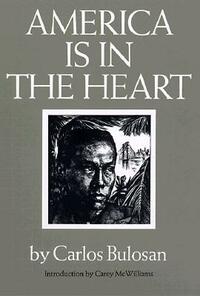Take a photo of a barcode or cover
adventurous
challenging
dark
emotional
hopeful
informative
inspiring
reflective
sad
tense
medium-paced
Plot or Character Driven:
A mix
Strong character development:
Yes
Loveable characters:
Yes
Diverse cast of characters:
Yes
Flaws of characters a main focus:
Yes
challenging
dark
hopeful
slow-paced
Plot or Character Driven:
A mix
Strong character development:
Complicated
Loveable characters:
Yes
Diverse cast of characters:
Yes
Flaws of characters a main focus:
No
Brutal.
America is also the nameless foreigner, the homeless refugee, the hungry boy begging for a job and the black body dangling on a tree. America is the illiterate immigrant who is ashamed that the world of books and intellectual opportunities is closed to him. We are all that nameless foreigner, that homeless refugee, that hungry boy, that illiterate immigrant and that lynched black body. All of us, from the first Adams to the last Filipino, native born or alien, educated or illiterate—We are America!
emotional
informative
reflective
sad
slow-paced
emotional
informative
reflective
sad
slow-paced
Plot or Character Driven:
A mix
Strong character development:
Complicated
Loveable characters:
Yes
Diverse cast of characters:
Yes
Flaws of characters a main focus:
Complicated
dark
emotional
informative
inspiring
reflective
sad
tense
slow-paced
Plot or Character Driven:
Plot
Strong character development:
Yes
Loveable characters:
N/A
Diverse cast of characters:
Yes
Flaws of characters a main focus:
Yes
Graphic: Hate crime, Mental illness, Racial slurs, Racism, Violence, Xenophobia, Police brutality, Grief, Injury/Injury detail
Moderate: Addiction, Animal cruelty, Child death, Domestic abuse, Drug abuse, Drug use, Gun violence, Misogyny, Rape, Sexual assault, Sexual violence, Medical content, Kidnapping, Murder, Alcohol, Colonisation
dark
emotional
hopeful
reflective
slow-paced
Plot or Character Driven:
Character
Strong character development:
Yes
Loveable characters:
Yes
Diverse cast of characters:
Yes
Flaws of characters a main focus:
Yes
adventurous
challenging
dark
emotional
hopeful
informative
inspiring
reflective
sad
tense
slow-paced
I’m glad I read this classic fictionalized autobiographical novel about a Filipino migrant worker during the Great Depression. The novel starts with Allos’ family life in the Philippines, but most of the story centers on his work, and later activism, in America. The book dragged for me after the first third. Bulosan’s accounts of his migrant work reads more like a list than a story. I found a few beautiful passages, but I found more that felt like a long, dry essay on activism. So all in all, an important book in the landscape of America’s immigrant experience but not necessarily an enjoyable read.
slow-paced
Plot or Character Driven:
Character
Strong character development:
Yes
Loveable characters:
No
Diverse cast of characters:
Yes
Flaws of characters a main focus:
Complicated
challenging
dark
sad
slow-paced







